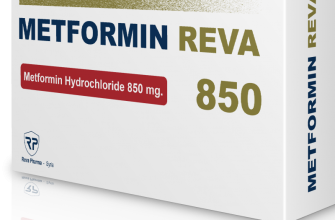Prednisone reduces inflammation. Always follow your doctor’s instructions precisely regarding dosage and duration.
Understanding Prednisone
Prednisone is a corticosteroid, a powerful anti-inflammatory medication. It works by decreasing the activity of your immune system. Doctors prescribe it for various conditions, including asthma, allergies, autoimmune diseases like rheumatoid arthritis, and certain cancers. The typical course of treatment varies greatly depending on your specific condition and response. Some treatments are short-term, others long-term. Discuss duration and potential side effects with your physician.
Potential Side Effects
- Weight gain: Increased appetite and fluid retention are common. Maintain a balanced diet and discuss weight management strategies with your doctor.
- Mood changes: Irritability, anxiety, and depression can occur. Open communication with your healthcare provider is key.
- Increased blood sugar: Prednisone can raise blood glucose levels. Regular monitoring and adjustments to your diabetes management plan may be necessary if you have diabetes.
- Weakened bones: Long-term use increases the risk of osteoporosis. Discuss bone density testing and preventative measures with your physician.
- High blood pressure: Monitor your blood pressure regularly and communicate any significant changes to your doctor.
Managing Side Effects
Many side effects are manageable. Your doctor can prescribe medication to address high blood pressure or high blood sugar. A balanced diet and regular exercise can help manage weight gain. Consider talking to a therapist about mood changes. Remember to report any concerning side effects immediately.
Important Considerations
- Never abruptly stop taking Prednisone. This can lead to severe withdrawal symptoms. Always taper off the medication gradually as directed by your doctor.
- Inform your doctor about all medications you take, including over-the-counter drugs and supplements, as interactions can occur.
- Be aware of infection risks. Prednisone suppresses the immune system, making you more susceptible to infections. Report any signs of illness promptly.
Medication Interactions
Prednisone interacts with many medications. Always provide your doctor with a complete list of your medications. This ensures your safety and helps prevent potential complications.
Disclaimer
This information is for educational purposes only and does not constitute medical advice. Always consult with your physician before starting or changing any medication.
Interactions with Other Medications and Substances
Always inform your doctor about all medications you take, including over-the-counter drugs, herbal supplements, and vitamins. Prednisone can interact negatively with many substances.
For example, combining prednisone with NSAIDs (like ibuprofen or naproxen) increases your risk of stomach ulcers and bleeding. Concomitant use with blood thinners, such as warfarin, may heighten bleeding risk. Simultaneous use with potassium-sparing diuretics can lead to elevated potassium levels in your blood. This interaction necessitates careful monitoring of your potassium levels.
Prednisone’s effects can be altered by certain antifungals, such as ketoconazole. This can lead to increased prednisone levels in your body. Conversely, drugs that induce liver enzymes, like rifampin, can decrease prednisone’s effectiveness.
Alcohol consumption should be limited while taking prednisone, as it can increase the risk of stomach upset and other side effects. Similarly, smoking can also negatively impact your response to prednisone.
This list isn’t exhaustive. Discuss all potential drug interactions with your physician before starting or altering any medications while on prednisone. Your doctor can provide personalized guidance based on your health status and the specific medications you’re using.










